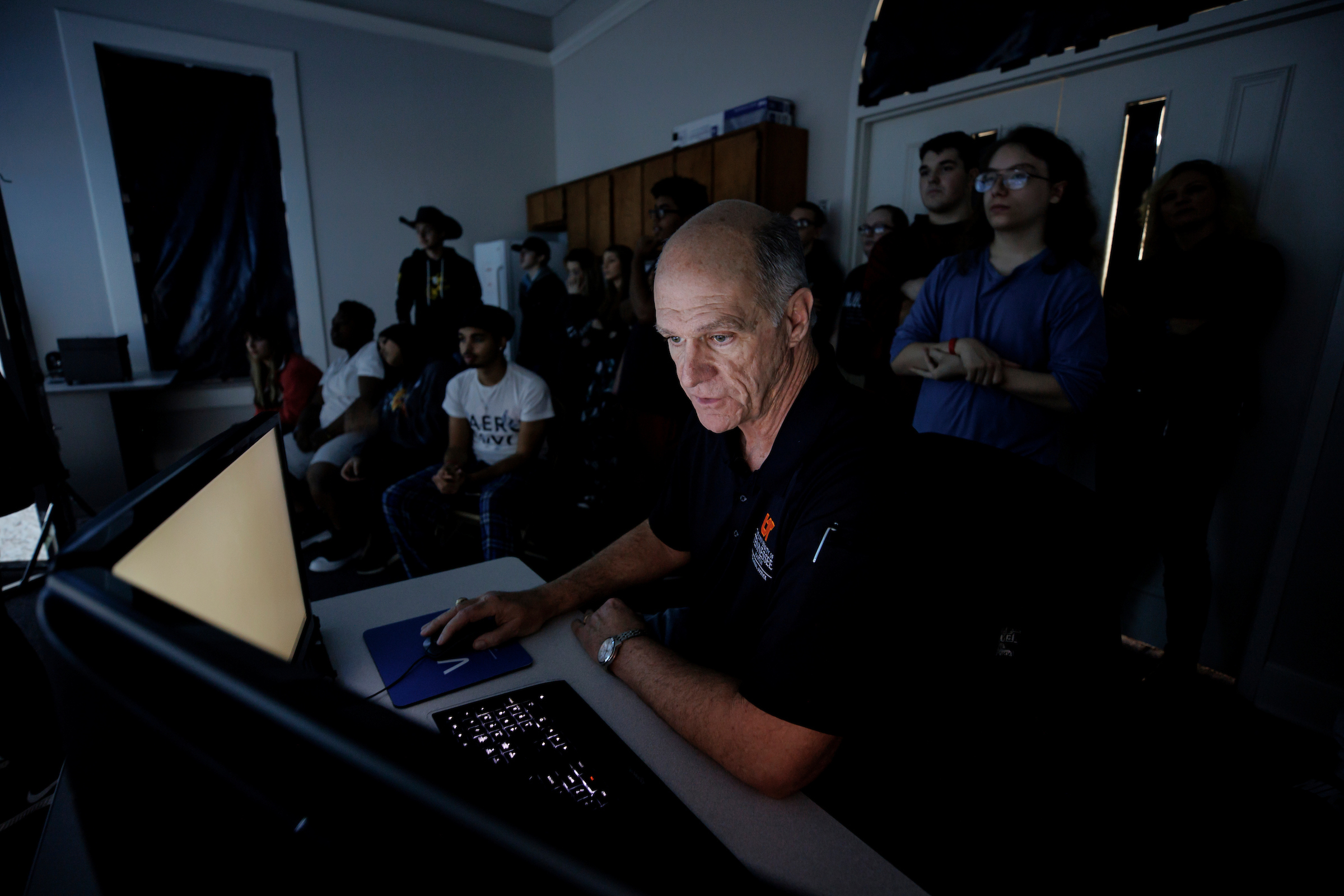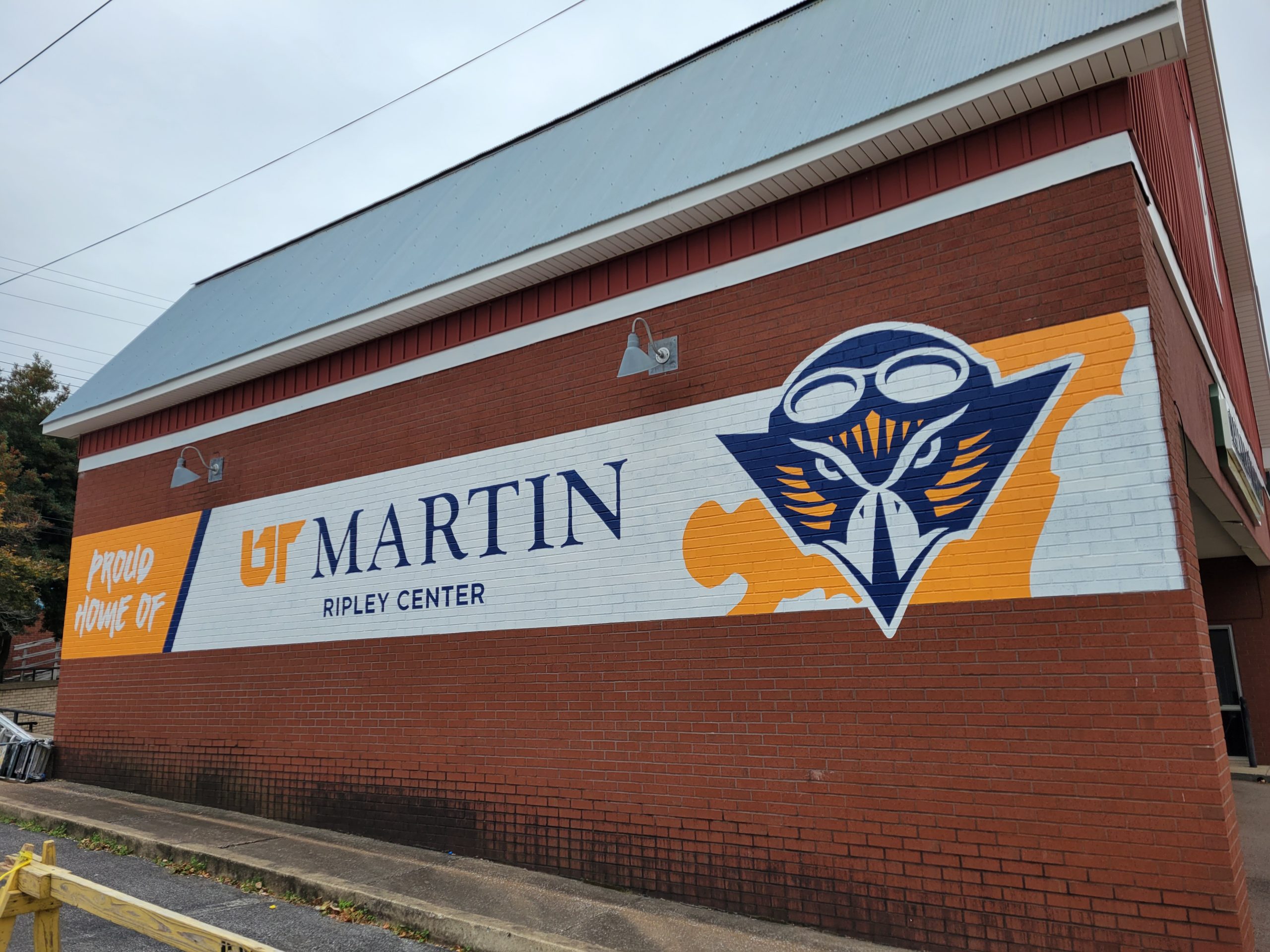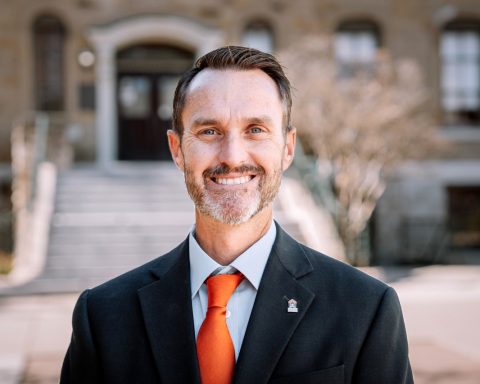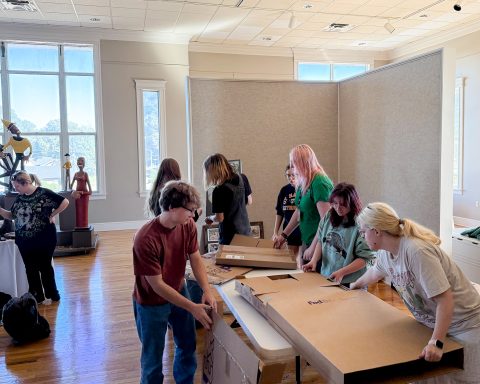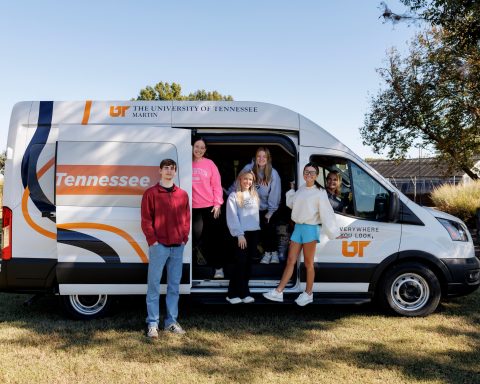In November 2021, the criminal justice program at the University of Tennessee at Martin received a two-year grant to teach and develop de-escalation techniques for police and first responders and build a training center for that purpose.
Two years later, the project received another two-year grant to bolster that mission.
Called DETER, the De-Escalation Techniques and Emergency Responses project has proven to be successful, garnering $547,293 in the original grant from U.S. Department of Agriculture Delta Health Care Services.
The second phase of the grant program brought an additional $407,000, bringing the total grant investment to $954,293.
Jackson State Community College and Carey Counseling Center Inc. are partners in the project along with UT Martin.
Dr. Brian Donavant, professor of criminal justice in the Department of Behavioral Sciences, wrote the grant and has worked with securing the grant since the project’s inception.
The first grant provided funding for the project to create a training center – the Lawrence D. Bromley Training Center in the C.E. Weldon Building in downtown Martin – and to purchase a VirTra 300 judgmental use-of-force simulator and real-life de-escalation training.
“The original purpose was to provide de-escalation training for law enforcement officers, for non-law enforcement crisis intervention specialists like social workers and to provide training for those aspiring to either of those two areas,” he said.
“In Phase I, we trained almost 1,500 folks, so it was very successful. Our goal was to train 700, so there is a need for it; people are really hungry for this kind of training.”
Donavant said one of the exciting things about the second grant is that it allows for the expansion of the current program. Its focus is on the area of the Delta Region, which includes parts of eight states, including West Tennessee, western Kentucky and southeast Missouri.
“Through this new grant, we have funded a graduate assistant who is a UT Martin graduate student in criminal justice, as well as undergraduate student interns every semester,” Donavant said. “This is going to increase our staff and our ability to do outreach and connect with the agencies out there who need this training.
“It’s also going to give us a great opportunity to provide our students with some real hands-on experience about how to run this type of project, how to organize them with the logistics involved in training and delivering training to communities to give them real, practical experience that they can incorporate into their degree programs and give them some great practical experience when they go out into the working world.”
Donavant said there is no cost for those taking the training that is provided through the DETER program.
“It gets more people to Martin and UT Martin so they can see what we offer here,” he said. “It also provides a service for the community. Last year, the legislature passed statutory requirements requiring police in Tennessee to receive de-escalation training annually.
“There is a need in law enforcement for this, but more importantly, there is a need in the community for this.”
The program has garnered almost $1 million in grant funding, but investments are coming from elsewhere, too.
“The university is making an investment in this as well,” Donavant said. “Not only through direct funding, but through support resources that amount to about $1.6 million. So, the total worth of the project thus far is more than $2 million, through the support of the university, support from the city of Martin, Jackson State Community College and Carey Counseling Center Inc.”
Donavant said a big part of the project is to educate the public on how to safely interact with police, understanding the police perspective in risky situations.
“It’s kind of what we do in law enforcement: We train officers to understand the perspectives of citizens, but they often don’t understand some of the things that law enforcement officers take for granted in their interactions. We’re trying to get everybody on the same page.”
Donavant said when he applied for the grant, he saw a need to provide training for law enforcement officers and people who weren’t officers to keep a potentially volatile situation from getting out of hand.
“You see incidents like the George Floyd incident, Tyre Nichols and others – all of these have made national headlines,” he said. “If you look at all of those, there is a disconnect about how police and the public interact. We need to get folks on the same page.
“Yes, police sometimes are in situations where they need to use force, but many times, there are other things we can do to resolve situations, and even if we do have to use force, many times, we can use lower levels of force if we learn how to better interact with the folks we’re dealing with.”
Donavant added that in his police career, there were many times when it would have been justified and appropriate for him to use deadly force, but because he had other tools and resources – including training in how to deal with people in those situations, he was able to de-escalate the situation without using high levels of force.
“The goal here is for everybody to go home safely, and when I say, ‘go home,’ that means ‘get away from that situation,’” he said. “Sometimes, ‘home,’ for a short period of time, is still in jail, but at least, we want them to go there safely.”
Photo: Dr. Brian Donavant looks into the control panel of the VirTra 300 simulator that helps train people to de-escalate potentially dangerous situations while a group of training participants watches the action on the screen.

